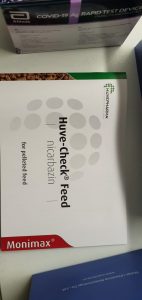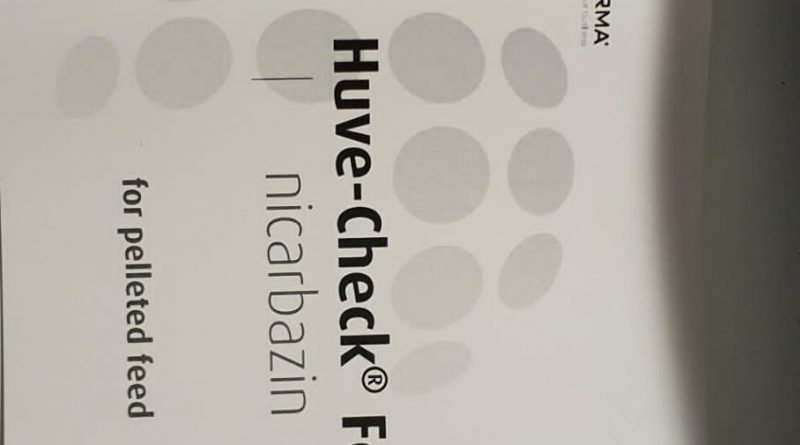Although randomized medical trials (RCTs) provide the very best degree of scientific evidence, they’re unable to guage the impression of therapies within the routine medical follow. The heterogeneity of socio-demographic and medical traits of sufferers, in addition to the complexity of therapies, clarify the hole between the impact noticed in RCTs and its impression within the real-world setting.
As in comparison with typical trials, pragmatic RCTs are carried out in a setting as comparable as attainable to that of medical follow, however they aren’t at all times in a position to slim this hole. For this causes, strategies aimed to provide evidence on the impression of healthcare pathways within the real-world (i.e., real-world evidence) are of rising curiosity.
In specific, these primarily based on the Electronic Healthcare Utilization (EHU), together with administrative databases on the healthcare companies offered to beneficiaries of the National Health System, are receiving growing consideration from each the scientific group and healthcare decision-makers. In this text, we described traits and analysis areas the place EHU databases could also be notably helpful, together with strengths and limits of this strategy. In conclusion, EHU data mustn’t substitute RCTs, however they characterize a robust device for integrating RCTs and for supporting healthcare decision-makers.
Finite factor evaluation of EBM manufactured bespoke implants: A probabilistic examine
This examine analyses three additively manufactured canine implants designed for angular limb deformity correction process by means of probabilistic numerical evaluation. These implants have produced glorious outcomes in-vivo and are operational to-date. Therefore, this examine makes use of finite factor evaluation along side statistical evaluation with a purpose to additional validate these implants from a numerical perspective. Due to uncertainties related to boundary situations for a bespoke implant geometry, the analyses on this examine have been carried out on a variety of enter values.
An interrogation of those parameters by means of sensitivity evaluation enabled in figuring out the important inputs. These inputs have been then employed to conduct robustness evaluation with a purpose to decide the imply worth of stress on which these implants ideally function. These imply values have been then in contrast with the related security and failure restrict to acquire the chance of reaching these limits by means of totally different reliability methods. A low chance of failure computed from numerical evaluation together with the continued efficiency of those implants, suggests a profitable integration of the methodology within the design part of bespoke implants.
Monotonic and Fatigue Behavior of EBM Manufactured Ti-6Al-4V Solid Samples: Experimental, Analytical and Numerical Investigations
The current examine goals to hold out an experimental, analytical and numerical investigation of the monotonic and fatigue efficiency of electron beam melted Ti-6Al-4V buildings. Therefore, tensile exams, a number of step exams and strain-life exams have been carried out on machined EBM Ti-6Al-4V strong samples. An elastic-plastic materials mannequin together with a numerical harm mannequin was examined in accordance with the experimental tensile exams. Analytical fashions proposed by Ramberg and Osgood, in addition to Coffin and Manson have been obtained to explain the cyclic stress-strain curves and strain-life curves, respectively.
The fracture surfaces of the examined samples and the affect of various construct instructions have been analyzed. A prediction of the static and fatigue materials properties is of specific significance, e.g., for the protected software of additively manufactured load-bearing implant buildings. Based on the decided analytical and numerical fashions, the fabric and product habits of complicated electron beam melted buildings underneath cyclic loading and fatigue life willpower might be investigated within the early phases of the product improvement course of.
EBM+: Advancing Evidence-Based Medicine through two degree automated identification of Populations, Interventions, Outcomes in medical literature
Evidence-Based Medicine (EBM) has been an vital follow for medical practitioners. However, because the variety of medical publications will increase dramatically, it’s turning into extraordinarily troublesome for medical consultants to evaluation all of the contents accessible and make an informative therapy plan for his or her sufferers. Quite a lot of frameworks, together with the PICO framework which is known as after its parts (Population, Intervention, Comparison, Outcome), have been developed to allow fine-grained searches, as step one to sooner choice making. In this work, we suggest a novel entity recognition system that identifies PICO entities inside medical publications and achieves state-of-the-art efficiency within the activity.
This is achieved by the mix of 4 2D Convolutional Neural Networks (CNNs) for character function extraction, and a Highway Residual connection to facilitate deep Neural Network architectures. We additional introduce a PICO Statement classifier, that identifies sentences that not solely include all PICO entities but additionally reply questions acknowledged in PICO. To facilitate this activity we additionally introduce a top quality dataset, manually annotated by medical practitioners. With the mix of our proposed PICO Entity Recognizer and PICO Statement classifier we purpose to advance EBM and allow its sooner and extra correct follow.
The Impact of the Media and Environmental Pollution on the Economy and Health Using a Modified Meta 2-Stage EBM Malmquist Model
China’s pursuit of financial progress, fast industrialization, and urbanization over the previous few a long time has resulted in excessive power consumption, which in flip has precipitated severe environmental air pollution issues, similar to CO2 and PM2.5 emissions, the long-term publicity to which might significantly have an effect on resident well being. To resolve these air air pollution issues, the Chinese authorities has put in place a number of insurance policies to scale back air and environmental air pollution.
Past research on power and environmental effectivity have been principally static, have ignored the dynamic adjustments over time and regional variations, and have hardly ever thought of human well being elements. Therefore, this examine employed a modified meta 2-stage Epsilon-Based Measure (EBM) Malmquist mannequin to discover the relationships between the financial system, power, the setting, well being and media, and the regional variations in 31 Chinese cities from 2014 to 2016.
 Antibody) CD68(CD68/G2) Antibody |
|
BNC700919-100 |
Biotium |
100uL |
EUR 238.8 |
|
Description: Primary antibody against CD68(CD68/G2), CF770 conjugate, Concentration: 0.1mg/mL |
 Antibody) CD68(CD68/G2) Antibody |
|
BNC700919-500 |
Biotium |
500uL |
EUR 652.8 |
|
Description: Primary antibody against CD68(CD68/G2), CF770 conjugate, Concentration: 0.1mg/mL |
 Antibody) CD68(CD68/G2) Antibody |
|
BNC880919-100 |
Biotium |
100uL |
EUR 238.8 |
|
Description: Primary antibody against CD68(CD68/G2), CF488A conjugate, Concentration: 0.1mg/mL |
 Antibody) CD68(CD68/G2) Antibody |
|
BNC880919-500 |
Biotium |
500uL |
EUR 652.8 |
|
Description: Primary antibody against CD68(CD68/G2), CF488A conjugate, Concentration: 0.1mg/mL |
 Antibody) CD68(CD68/G2) Antibody |
|
BNC050919-100 |
Biotium |
100uL |
EUR 238.8 |
|
Description: Primary antibody against CD68(CD68/G2), CF405M conjugate, Concentration: 0.1mg/mL |
 Antibody) CD68(CD68/G2) Antibody |
|
BNC050919-500 |
Biotium |
500uL |
EUR 652.8 |
|
Description: Primary antibody against CD68(CD68/G2), CF405M conjugate, Concentration: 0.1mg/mL |
 Antibody) CD68(CD68/G2) Antibody |
|
BNC040919-100 |
Biotium |
100uL |
EUR 238.8 |
|
Description: Primary antibody against CD68(CD68/G2), CF405S conjugate, Concentration: 0.1mg/mL |
 Antibody) CD68(CD68/G2) Antibody |
|
BNC040919-500 |
Biotium |
500uL |
EUR 652.8 |
|
Description: Primary antibody against CD68(CD68/G2), CF405S conjugate, Concentration: 0.1mg/mL |
 Antibody) CD68(CD68/G2) Antibody |
|
BNC400919-100 |
Biotium |
100uL |
EUR 238.8 |
|
Description: Primary antibody against CD68(CD68/G2), CF640R conjugate, Concentration: 0.1mg/mL |
 Antibody) CD68(CD68/G2) Antibody |
|
BNC400919-500 |
Biotium |
500uL |
EUR 652.8 |
|
Description: Primary antibody against CD68(CD68/G2), CF640R conjugate, Concentration: 0.1mg/mL |
 Antibody) CD68(CD68/G2) Antibody |
|
BNCB0919-100 |
Biotium |
100uL |
EUR 238.8 |
|
Description: Primary antibody against CD68(CD68/G2), Biotin conjugate, Concentration: 0.1mg/mL |
 Antibody) CD68(CD68/G2) Antibody |
|
BNCB0919-500 |
Biotium |
500uL |
EUR 652.8 |
|
Description: Primary antibody against CD68(CD68/G2), Biotin conjugate, Concentration: 0.1mg/mL |
 Antibody) CD68(CD68/G2) Antibody |
|
BNCAP0919-100 |
Biotium |
100uL |
EUR 238.8 |
|
Description: Primary antibody against CD68(CD68/G2), Alkaline Phosphatase conjugate, Concentration: 0.1mg/mL |
 Antibody) CD68(CD68/G2) Antibody |
|
BNCAP0919-500 |
Biotium |
500uL |
EUR 652.8 |
|
Description: Primary antibody against CD68(CD68/G2), Alkaline Phosphatase conjugate, Concentration: 0.1mg/mL |
 Antibody) CD68(CD68/G2) Antibody |
|
BNCA0919-250 |
Biotium |
250uL |
EUR 459.6 |
|
Description: Primary antibody against CD68(CD68/G2), APC conjugate, Concentration: 0.1mg/mL |
 Antibody) CD68(CD68/G2) Antibody |
|
BNCR0919-250 |
Biotium |
250uL |
EUR 459.6 |
|
Description: Primary antibody against CD68(CD68/G2), RPE conjugate, Concentration: 0.1mg/mL |
 Antibody) CD68(CD68/G2) Antibody |
|
BNCP0919-250 |
Biotium |
250uL |
EUR 459.6 |
|
Description: Primary antibody against CD68(CD68/G2), PerCP conjugate, Concentration: 0.1mg/mL |
 Antibody) CD68(CD68/G2) Antibody |
|
BNUM0919-50 |
Biotium |
50uL |
EUR 474 |
|
Description: Primary antibody against CD68(CD68/G2), 1mg/mL |
 Antibody) CD68(CD68/G2) Antibody |
|
BNCH0919-100 |
Biotium |
100uL |
EUR 238.8 |
|
Description: Primary antibody against CD68(CD68/G2), Horseradish Peroxidase conjugate, Concentration: 0.1mg/mL |
 Antibody) CD68(CD68/G2) Antibody |
|
BNCH0919-500 |
Biotium |
500uL |
EUR 652.8 |
|
Description: Primary antibody against CD68(CD68/G2), Horseradish Peroxidase conjugate, Concentration: 0.1mg/mL |
 Antibody) CD68(CD68/G2) Antibody |
|
BNUB0919-100 |
Biotium |
100uL |
EUR 250.8 |
|
Description: Primary antibody against CD68(CD68/G2), Concentration: 0.2mg/mL |
 Antibody) CD68(CD68/G2) Antibody |
|
BNUB0919-500 |
Biotium |
500uL |
EUR 549.6 |
|
Description: Primary antibody against CD68(CD68/G2), Concentration: 0.2mg/mL |
 Antibody) CD68(CD68/G2) Antibody |
|
BNC610919-100 |
Biotium |
100uL |
EUR 238.8 |
|
Description: Primary antibody against CD68(CD68/G2), CF660R conjugate, Concentration: 0.1mg/mL |
 Antibody) CD68(CD68/G2) Antibody |
|
BNC610919-500 |
Biotium |
500uL |
EUR 652.8 |
|
Description: Primary antibody against CD68(CD68/G2), CF660R conjugate, Concentration: 0.1mg/mL |
 Antibody) CD68(CD68/G2) Antibody |
|
BNC550919-100 |
Biotium |
100uL |
EUR 238.8 |
|
Description: Primary antibody against CD68(CD68/G2), CF555 conjugate, Concentration: 0.1mg/mL |
 Antibody) CD68(CD68/G2) Antibody |
|
BNC550919-500 |
Biotium |
500uL |
EUR 652.8 |
|
Description: Primary antibody against CD68(CD68/G2), CF555 conjugate, Concentration: 0.1mg/mL |
 Antibody) CD68(CD68/G2) Antibody |
|
BNC430919-100 |
Biotium |
100uL |
EUR 238.8 |
|
Description: Primary antibody against CD68(CD68/G2), CF543 conjugate, Concentration: 0.1mg/mL |
 Antibody) CD68(CD68/G2) Antibody |
|
BNC430919-500 |
Biotium |
500uL |
EUR 652.8 |
|
Description: Primary antibody against CD68(CD68/G2), CF543 conjugate, Concentration: 0.1mg/mL |
 Antibody) CD68(CD68/G2) Antibody |
|
BNC680919-100 |
Biotium |
100uL |
EUR 238.8 |
|
Description: Primary antibody against CD68(CD68/G2), CF568 conjugate, Concentration: 0.1mg/mL |
 Antibody) CD68(CD68/G2) Antibody |
|
BNC680919-500 |
Biotium |
500uL |
EUR 652.8 |
|
Description: Primary antibody against CD68(CD68/G2), CF568 conjugate, Concentration: 0.1mg/mL |
 Antibody) CD68(CD68/G2) Antibody |
|
BNC470919-100 |
Biotium |
100uL |
EUR 238.8 |
|
Description: Primary antibody against CD68(CD68/G2), CF647 conjugate, Concentration: 0.1mg/mL |
 Antibody) CD68(CD68/G2) Antibody |
|
BNC470919-500 |
Biotium |
500uL |
EUR 652.8 |
|
Description: Primary antibody against CD68(CD68/G2), CF647 conjugate, Concentration: 0.1mg/mL |
 CD68 |
|
pro-1209 |
ProSpec Tany |
2µg |
EUR 60 |
|
Description: Recombinant Human CD68 |
 CD68 |
|
E8ET1611-53 |
EnoGene |
100ul |
EUR 275 |
|
Description: Available in various conjugation types. |
 CD68 |
|
E8EM1706-10 |
EnoGene |
100ul |
EUR 275 |
|
Description: Available in various conjugation types. |
 CD68 |
|
E8EM1706-11 |
EnoGene |
100ul |
EUR 275 |
|
Description: Available in various conjugation types. |
 CD68 |
|
CSB-CL004951HU |
Cusabio |
10 μg plasmid + 200μl Glycerol |
Ask for price |
 Mouse mAb) CD68 (ABT-CD68) Mouse mAb |
|
E2252670 |
EnoGene |
100ul |
EUR 225 |
|
Description: Available in various conjugation types. |
 - Mouse CD68 antigen (Cd68), transcript variant 1) Cd68 (myc-DDK-tagged) - Mouse CD68 antigen (Cd68), transcript variant 1 |
|
MR229261 |
Origene Technologies GmbH |
10 µg |
Ask for price |
-Human CD68 molecule (CD68), transcript variant 1) CD68 (Myc-DDK-tagged)-Human CD68 molecule (CD68), transcript variant 1 |
|
RC200392 |
Origene Technologies GmbH |
10 µg |
Ask for price |
-Human CD68 molecule (CD68), transcript variant 2) CD68 (Myc-DDK-tagged)-Human CD68 molecule (CD68), transcript variant 2 |
|
RC220055 |
Origene Technologies GmbH |
10 µg |
Ask for price |
 CD68, Sf9 |
|
pro-2375 |
ProSpec Tany |
2µg |
EUR 60 |
|
Description: Recombinant Human CD68, Sf9 |
 CD68 siRNA |
|
20-abx911060 |
Abbexa |
|
|
|
|
 CD68 Peptide |
|
43-699P |
ProSci |
0.1 mg |
EUR 405.6 |
 CD68 Antibody |
|
abx140493-100tests |
Abbexa |
100 tests |
EUR 577.2 |
|
|
 CD68 antibody |
|
10R-10864 |
Fitzgerald |
500 ul |
EUR 638.4 |
|
Description: Mouse monoclonal CD68 antibody |
 CD68 antibody |
|
10R-2906 |
Fitzgerald |
100 ul |
EUR 444 |
|
Description: Mouse monoclonal CD68 antibody |
 CD68 Antibody |
|
37164-100ul |
SAB |
100ul |
EUR 302.4 |
 CD68 antibody |
|
70R-14057 |
Fitzgerald |
100 ug |
EUR 366 |
|
Description: Affinity purified Rabbit polyclonal CD68 antibody |
 CD68 antibody |
|
70R-21478 |
Fitzgerald |
50 ul |
EUR 522 |
|
Description: Rabbit polyclonal CD68 antibody |
 CD68 Antibody |
|
35380-100ul |
SAB |
100ul |
EUR 468 |
 CD68 Antibody |
|
49067-100ul |
SAB |
100ul |
EUR 399.6 |
 CD68 Antibody |
|
49067-50ul |
SAB |
50ul |
EUR 286.8 |
 CD68 Antibody |
|
1-CSB-PA004951ESR2HU |
Cusabio |
|
|
|
|
|
Description: A polyclonal antibody against CD68. Recognizes CD68 from Human. This antibody is Unconjugated. Tested in the following application: ELISA, IHC; Recommended dilution: IHC:1:20-1:200 |
 CD68 Antibody |
|
1-CSB-PA004951GA01HU |
Cusabio |
|
|
|
|
|
Description: A polyclonal antibody against CD68. Recognizes CD68 from Human. This antibody is Unconjugated. Tested in the following application: ELISA, WB, IF |
 Cd68 Antibody |
|
1-CSB-PA004951LA01MO |
Cusabio |
|
|
|
|
|
Description: A polyclonal antibody against Cd68. Recognizes Cd68 from Mouse. This antibody is Unconjugated. Tested in the following application: ELISA |
 CD68 Antibody |
|
1-CSB-PA005139 |
Cusabio |
|
|
|
|
|
Description: A polyclonal antibody against CD68. Recognizes CD68 from Human. This antibody is Unconjugated. Tested in the following application: WB, ELISA;WB:1/500-1/2000.ELISA:1/20000 |
 CD68 Antibody |
|
1-CSB-PA282654 |
Cusabio |
|
|
|
|
|
Description: A polyclonal antibody against CD68. Recognizes CD68 from Human. This antibody is Unconjugated. Tested in the following application: ELISA, IHC;ELISA:1:2000-1:5000, IHC:1:50-1:200 |
 CD68 Antibody |
|
F53604-0.1ML |
NSJ Bioreagents |
0.1 ml |
EUR 322.15 |
|
Description: This gene encodes a 40~110-kD transmembrane glycoprotein that is highly expressed by human monocytes and tissue macrophages. It is a member of the lysosomal/endosomal-associated membrane glycoprotein (LAMP) family. The protein primarily localizes to lysosomes and endosomes with a smaller fraction circulating to the cell surface. It is a type I integral membrane protein with a heavily glycosylated extracellular domain and binds to tissue- and organ-specific lectins or selectins. The protein is also a member of the scavenger receptor family. Scavenger receptors typically function to clear cellular debris, promote phagocytosis, and mediate the recruitment and activation of macrophages. Alternative splicing results in multiple transcripts encoding different isoforms. |
 CD68 Antibody |
|
F45597-0.08ML |
NSJ Bioreagents |
0.08 ml |
EUR 140.25 |
|
Description: This gene encodes a 40~110-kD transmembrane glycoprotein that is highly expressed by human monocytes and tissue macrophages. It is a member of the lysosomal/endosomal-associated membrane glycoprotein (LAMP) family. The protein primarily localizes to lysosomes and endosomes with a smaller fraction circulating to the cell surface. It is a type I integral membrane protein with a heavily glycosylated extracellular domain and binds to tissue- and organ-specific lectins or selectins. The protein is also a member of the scavenger receptor family. Scavenger receptors typically function to clear cellular debris, promote phagocytosis, and mediate the recruitment and activation of macrophages. Alternative splicing results in multiple transcripts encoding different isoforms. |
 CD68 Antibody |
|
F45597-0.4ML |
NSJ Bioreagents |
0.4 ml |
EUR 322.15 |
|
Description: This gene encodes a 40~110-kD transmembrane glycoprotein that is highly expressed by human monocytes and tissue macrophages. It is a member of the lysosomal/endosomal-associated membrane glycoprotein (LAMP) family. The protein primarily localizes to lysosomes and endosomes with a smaller fraction circulating to the cell surface. It is a type I integral membrane protein with a heavily glycosylated extracellular domain and binds to tissue- and organ-specific lectins or selectins. The protein is also a member of the scavenger receptor family. Scavenger receptors typically function to clear cellular debris, promote phagocytosis, and mediate the recruitment and activation of macrophages. Alternative splicing results in multiple transcripts encoding different isoforms. |
 CD68 Antibody |
|
V7390-100UG |
NSJ Bioreagents |
100 ug |
EUR 349.3 |
|
Description: This antibody recognizes a glycoprotein of 110kDa, which is identified as CD68. It is important for identifying macrophages in tissue sections. It stains macrophages in a wide variety of human tissues, including Kupffer cells and macrophages in the red pulp of the spleen, in lamina propria of the gut, in lung alveoli, and in bone marrow. It reacts with myeloid precursors and peripheral blood granulocytes. It also reacts with plasmacytoid T cells, which are supposed to be of monocyte/macrophage origin. It shows strong granular cytoplasmic staining of chronic and acute myeloid leukemia and also reacts with rare cases of true histiocytic neoplasia. Lymphomas are negative or show few granules. |
 CD68 Antibody |
|
V7390-20UG |
NSJ Bioreagents |
20 ug |
EUR 153.3 |
|
Description: This antibody recognizes a glycoprotein of 110kDa, which is identified as CD68. It is important for identifying macrophages in tissue sections. It stains macrophages in a wide variety of human tissues, including Kupffer cells and macrophages in the red pulp of the spleen, in lamina propria of the gut, in lung alveoli, and in bone marrow. It reacts with myeloid precursors and peripheral blood granulocytes. It also reacts with plasmacytoid T cells, which are supposed to be of monocyte/macrophage origin. It shows strong granular cytoplasmic staining of chronic and acute myeloid leukemia and also reacts with rare cases of true histiocytic neoplasia. Lymphomas are negative or show few granules. |
 CD68 Antibody |
|
V7390IHC-7ML |
NSJ Bioreagents |
7 ml |
EUR 349.3 |
|
Description: This antibody recognizes a glycoprotein of 110kDa, which is identified as CD68. It is important for identifying macrophages in tissue sections. It stains macrophages in a wide variety of human tissues, including Kupffer cells and macrophages in the red pulp of the spleen, in lamina propria of the gut, in lung alveoli, and in bone marrow. It reacts with myeloid precursors and peripheral blood granulocytes. It also reacts with plasmacytoid T cells, which are supposed to be of monocyte/macrophage origin. It shows strong granular cytoplasmic staining of chronic and acute myeloid leukemia and also reacts with rare cases of true histiocytic neoplasia. Lymphomas are negative or show few granules. |
 CD68 Antibody |
|
V7390SAF-100UG |
NSJ Bioreagents |
100 ug |
EUR 349.3 |
|
Description: This antibody recognizes a glycoprotein of 110kDa, which is identified as CD68. It is important for identifying macrophages in tissue sections. It stains macrophages in a wide variety of human tissues, including Kupffer cells and macrophages in the red pulp of the spleen, in lamina propria of the gut, in lung alveoli, and in bone marrow. It reacts with myeloid precursors and peripheral blood granulocytes. It also reacts with plasmacytoid T cells, which are supposed to be of monocyte/macrophage origin. It shows strong granular cytoplasmic staining of chronic and acute myeloid leukemia and also reacts with rare cases of true histiocytic neoplasia. Lymphomas are negative or show few granules. |
 CD68 Antibody |
|
V7391-100UG |
NSJ Bioreagents |
100 ug |
EUR 349.3 |
|
Description: This antibody recognizes a glycoprotein of 110kDa, which is identified as CD68. It is important for identifying macrophages in tissue sections. It stains macrophages in a wide variety of human tissues, including Kupffer cells and macrophages in the red pulp of the spleen, in lamina propria of the gut, in lung alveoli, and in bone marrow. It reacts with myeloid precursors and peripheral blood granulocytes. It also reacts with plasmacytoid T cells, which are supposed to be of monocyte/macrophage origin. It shows strong granular cytoplasmic staining of chronic and acute myeloid leukemia and also reacts with rare cases of true histiocytic neoplasia. Lymphomas are negative or show few granules. |
 CD68 Antibody |
|
V7391-20UG |
NSJ Bioreagents |
20 ug |
EUR 153.3 |
|
Description: This antibody recognizes a glycoprotein of 110kDa, which is identified as CD68. It is important for identifying macrophages in tissue sections. It stains macrophages in a wide variety of human tissues, including Kupffer cells and macrophages in the red pulp of the spleen, in lamina propria of the gut, in lung alveoli, and in bone marrow. It reacts with myeloid precursors and peripheral blood granulocytes. It also reacts with plasmacytoid T cells, which are supposed to be of monocyte/macrophage origin. It shows strong granular cytoplasmic staining of chronic and acute myeloid leukemia and also reacts with rare cases of true histiocytic neoplasia. Lymphomas are negative or show few granules. |
 CD68 Antibody |
|
V7391IHC-7ML |
NSJ Bioreagents |
7 ml |
EUR 349.3 |
|
Description: This antibody recognizes a glycoprotein of 110kDa, which is identified as CD68. It is important for identifying macrophages in tissue sections. It stains macrophages in a wide variety of human tissues, including Kupffer cells and macrophages in the red pulp of the spleen, in lamina propria of the gut, in lung alveoli, and in bone marrow. It reacts with myeloid precursors and peripheral blood granulocytes. It also reacts with plasmacytoid T cells, which are supposed to be of monocyte/macrophage origin. It shows strong granular cytoplasmic staining of chronic and acute myeloid leukemia and also reacts with rare cases of true histiocytic neoplasia. Lymphomas are negative or show few granules. |
 CD68 Antibody |
|
V7391SAF-100UG |
NSJ Bioreagents |
100 ug |
EUR 349.3 |
|
Description: This antibody recognizes a glycoprotein of 110kDa, which is identified as CD68. It is important for identifying macrophages in tissue sections. It stains macrophages in a wide variety of human tissues, including Kupffer cells and macrophages in the red pulp of the spleen, in lamina propria of the gut, in lung alveoli, and in bone marrow. It reacts with myeloid precursors and peripheral blood granulocytes. It also reacts with plasmacytoid T cells, which are supposed to be of monocyte/macrophage origin. It shows strong granular cytoplasmic staining of chronic and acute myeloid leukemia and also reacts with rare cases of true histiocytic neoplasia. Lymphomas are negative or show few granules. |
 CD68 Antibody |
|
V8260-100UG |
NSJ Bioreagents |
100 ug |
EUR 349.3 |
|
Description: This antibody recognizes a glycoprotein of 110kDa, which is identified as CD68. It is important for identifying macrophages in tissue sections. It stains macrophages in a wide variety of human tissues, including Kupffer cells and macrophages in the red pulp of the spleen, in lamina propria of the gut, in lung alveoli, and in bone marrow. It reacts with myeloid precursors and peripheral blood granulocytes. It also reacts with plasmacytoid T cells, which are supposed to be of monocyte/macrophage origin. It shows strong granular cytoplasmic staining of chronic and acute myeloid leukemia and also reacts with rare cases of true histiocytic neoplasia. Lymphomas are negative or show few granules. |
 CD68 Antibody |
|
V8260-20UG |
NSJ Bioreagents |
20 ug |
EUR 153.3 |
|
Description: This antibody recognizes a glycoprotein of 110kDa, which is identified as CD68. It is important for identifying macrophages in tissue sections. It stains macrophages in a wide variety of human tissues, including Kupffer cells and macrophages in the red pulp of the spleen, in lamina propria of the gut, in lung alveoli, and in bone marrow. It reacts with myeloid precursors and peripheral blood granulocytes. It also reacts with plasmacytoid T cells, which are supposed to be of monocyte/macrophage origin. It shows strong granular cytoplasmic staining of chronic and acute myeloid leukemia and also reacts with rare cases of true histiocytic neoplasia. Lymphomas are negative or show few granules. |
 CD68 Antibody |
|
V8260SAF-100UG |
NSJ Bioreagents |
100 ug |
EUR 349.3 |
|
Description: This antibody recognizes a glycoprotein of 110kDa, which is identified as CD68. It is important for identifying macrophages in tissue sections. It stains macrophages in a wide variety of human tissues, including Kupffer cells and macrophages in the red pulp of the spleen, in lamina propria of the gut, in lung alveoli, and in bone marrow. It reacts with myeloid precursors and peripheral blood granulocytes. It also reacts with plasmacytoid T cells, which are supposed to be of monocyte/macrophage origin. It shows strong granular cytoplasmic staining of chronic and acute myeloid leukemia and also reacts with rare cases of true histiocytic neoplasia. Lymphomas are negative or show few granules. |
 CD68 Antibody |
|
V8261-100UG |
NSJ Bioreagents |
100 ug |
EUR 349.3 |
|
Description: This antibody recognizes a glycoprotein of 110kDa, which is identified as CD68. It is important for identifying macrophages in tissue sections. It stains macrophages in a wide variety of human tissues, including Kupffer cells and macrophages in the red pulp of the spleen, in lamina propria of the gut, in lung alveoli, and in bone marrow. It reacts with myeloid precursors and peripheral blood granulocytes. It also reacts with plasmacytoid T cells, which are supposed to be of monocyte/macrophage origin. It shows strong granular cytoplasmic staining of chronic and acute myeloid leukemia and also reacts with rare cases of true histiocytic neoplasia. Lymphomas are negative or show few granules. |
 CD68 Antibody |
|
V8261-20UG |
NSJ Bioreagents |
20 ug |
EUR 153.3 |
|
Description: This antibody recognizes a glycoprotein of 110kDa, which is identified as CD68. It is important for identifying macrophages in tissue sections. It stains macrophages in a wide variety of human tissues, including Kupffer cells and macrophages in the red pulp of the spleen, in lamina propria of the gut, in lung alveoli, and in bone marrow. It reacts with myeloid precursors and peripheral blood granulocytes. It also reacts with plasmacytoid T cells, which are supposed to be of monocyte/macrophage origin. It shows strong granular cytoplasmic staining of chronic and acute myeloid leukemia and also reacts with rare cases of true histiocytic neoplasia. Lymphomas are negative or show few granules. |
 CD68 Antibody |
|
V8261SAF-100UG |
NSJ Bioreagents |
100 ug |
EUR 349.3 |
|
Description: This antibody recognizes a glycoprotein of 110kDa, which is identified as CD68. It is important for identifying macrophages in tissue sections. It stains macrophages in a wide variety of human tissues, including Kupffer cells and macrophages in the red pulp of the spleen, in lamina propria of the gut, in lung alveoli, and in bone marrow. It reacts with myeloid precursors and peripheral blood granulocytes. It also reacts with plasmacytoid T cells, which are supposed to be of monocyte/macrophage origin. It shows strong granular cytoplasmic staining of chronic and acute myeloid leukemia and also reacts with rare cases of true histiocytic neoplasia. Lymphomas are negative or show few granules. |
 CD68 Antibody |
|
V2074-100UG |
NSJ Bioreagents |
100 ug |
EUR 349.3 |
|
Description: This antibody recognizes a glycoprotein of 110kDa, which is identified as CD68. antibody to CD68 is important for identifying macrophages in tissue sections. It stains macrophages in a wide variety of human tissues, including Kupffer cells and macrophages in the red pulp of the spleen, in lamina propria of the gut, in lung alveoli, and in bone marrow. CD68 antibody reacts with myeloid precursors and peripheral blood granulocytes. It also reacts with plasmacytoid T cells, which are supposed to be of monocyte/macrophage origin. CD68 shows strong granular cytoplasmic staining of chronic and acute myeloid leukemia and also reacts with rare cases of true histiocytic neoplasia. Lymphomas are negative or show few granules. |
 CD68 Antibody |
|
V2074-20UG |
NSJ Bioreagents |
20 ug |
EUR 153.3 |
|
Description: This antibody recognizes a glycoprotein of 110kDa, which is identified as CD68. antibody to CD68 is important for identifying macrophages in tissue sections. It stains macrophages in a wide variety of human tissues, including Kupffer cells and macrophages in the red pulp of the spleen, in lamina propria of the gut, in lung alveoli, and in bone marrow. CD68 antibody reacts with myeloid precursors and peripheral blood granulocytes. It also reacts with plasmacytoid T cells, which are supposed to be of monocyte/macrophage origin. CD68 shows strong granular cytoplasmic staining of chronic and acute myeloid leukemia and also reacts with rare cases of true histiocytic neoplasia. Lymphomas are negative or show few granules. |
 CD68 Antibody |
|
V2074IHC-7ML |
NSJ Bioreagents |
7 ml |
EUR 349.3 |
|
Description: This antibody recognizes a glycoprotein of 110kDa, which is identified as CD68. antibody to CD68 is important for identifying macrophages in tissue sections. It stains macrophages in a wide variety of human tissues, including Kupffer cells and macrophages in the red pulp of the spleen, in lamina propria of the gut, in lung alveoli, and in bone marrow. CD68 antibody reacts with myeloid precursors and peripheral blood granulocytes. It also reacts with plasmacytoid T cells, which are supposed to be of monocyte/macrophage origin. CD68 shows strong granular cytoplasmic staining of chronic and acute myeloid leukemia and also reacts with rare cases of true histiocytic neoplasia. Lymphomas are negative or show few granules. |
 CD68 Antibody |
|
V2074SAF-100UG |
NSJ Bioreagents |
100 ug |
EUR 349.3 |
|
Description: This antibody recognizes a glycoprotein of 110kDa, which is identified as CD68. antibody to CD68 is important for identifying macrophages in tissue sections. It stains macrophages in a wide variety of human tissues, including Kupffer cells and macrophages in the red pulp of the spleen, in lamina propria of the gut, in lung alveoli, and in bone marrow. CD68 antibody reacts with myeloid precursors and peripheral blood granulocytes. It also reacts with plasmacytoid T cells, which are supposed to be of monocyte/macrophage origin. CD68 shows strong granular cytoplasmic staining of chronic and acute myeloid leukemia and also reacts with rare cases of true histiocytic neoplasia. Lymphomas are negative or show few granules. |
 CD68 Antibody |
|
RQ6989 |
NSJ Bioreagents |
100 ug |
EUR 356.15 |
|
Description: CD68, cluster of differentiation, is a 110-kD transmembrane glycoprotein that is highly expressed by human monocytes and tissue macrophages. CD68 is a member of a family of hematopoietic mucin-like molecules that includes leukosialin/CD43 and stem cell antigen CD34. The CD68 gene is mapped to 17p13.1. Immunohistochemistry can be used to identify the presence of CD68, which is found in the cytoplasmic granules of a range of different blood cells. It is particularly useful as a marker for the various cells of the macrophage lineage, including monocytes, histiocytes, giant cells, Kupffer cells, and osteoclasts. This allows it to be used to distinguish diseases of otherwise similar appearance, such as the monocyte/macrophage and lymphoid forms of leukaemia (the latter being CD68 negative). Its presence in macrophages also makes it useful in diagnosing conditions related to proliferation or abnormality of these cells, such as malignant histiocytosis, histiocytic lymphoma, and Gaucher's disease. |
 CD68 Antibody |
|
R30592 |
NSJ Bioreagents |
100 ug |
EUR 356.15 |
|
Description: Cluster of differentiation 68 is a transmembrane glycoprotein that is highly expressed by human monocytes and tissue macrophages. CD68 is a member of a family of hematopoietic mucin-like molecules that includes leukosialin/CD43 and stem cell antigen CD34. The gene is mapped to 17p13.1. Immunohistochemistry can be used to identify the presence of CD68, which is found in the cytoplasmic granules of a range of different blood cells. It is particularly useful as a marker for the various cells of the macrophage lineage, including monocytes, histiocytes, giant cells, Kupffer cells, and osteoclasts. This allows it to be used to distinguish diseases of otherwise similar appearance, such as the monocyte/macrophage and lymphoid forms of leukaemia(the latter being CD68 negative). Its presence in macrophages also makes it useful in diagnosing conditions related to proliferation or abnormality of these cells, such as malignant histiocytosis, histiocytic lymphoma, and Gaucher's disease. |
 CD68 Antibody |
|
R31126 |
NSJ Bioreagents |
100 ug |
EUR 356.15 |
|
Description: Cluster of differentiation 68 is a 110-kD transmembrane glycoprotein that is highly expressed by human monocytes and tissue macrophages. CD68 is a member of a family of hematopoietic mucin-like molecules that includes leukosialin/CD43 and stem cell antigen CD34. The gene is mapped to 17p13.1. Immunohistochemistry can be used to identify the presence of CD68, which is found in the cytoplasmic granules of a range of different blood cells. It is particularly useful as a marker for the various cells of the macrophage lineage, including monocytes, histiocytes, giant cells, Kupffer cells, and osteoclasts. This allows it to be used to distinguish diseases of otherwise similar appearance, such as the monocyte/macrophage and lymphoid forms of leukaemia(the latter being CD68 negative). Its presence in macrophages also makes it useful in diagnosing conditions related to proliferation or abnormality of these cells, such as malignant histiocytosis, histiocytic lymphoma, and Gaucher's disease. |
 CD68 Antibody |
|
V3175-100UG |
NSJ Bioreagents |
100 ug |
EUR 349.3 |
|
Description: This antibody recognizes a glycoprotein of 110kDa, which is identified as CD68. It is important for identifying macrophages in tissue sections. It stains macrophages in a wide variety of human tissues, including Kupffer cells and macrophages in the red pulp of the spleen, in lamina propria of the gut, in lung alveoli, and in bone marrow. It reacts with myeloid precursors and peripheral blood granulocytes. It also reacts with plasmacytoid T cells, which are supposed to be of monocyte/macrophage origin. It shows strong granular cytoplasmic staining of chronic and acute myeloid leukemia and also reacts with rare cases of true histiocytic neoplasia. Lymphomas are negative or show few granules. |
 CD68 Antibody |
|
V3175-20UG |
NSJ Bioreagents |
20 ug |
EUR 153.3 |
|
Description: This antibody recognizes a glycoprotein of 110kDa, which is identified as CD68. It is important for identifying macrophages in tissue sections. It stains macrophages in a wide variety of human tissues, including Kupffer cells and macrophages in the red pulp of the spleen, in lamina propria of the gut, in lung alveoli, and in bone marrow. It reacts with myeloid precursors and peripheral blood granulocytes. It also reacts with plasmacytoid T cells, which are supposed to be of monocyte/macrophage origin. It shows strong granular cytoplasmic staining of chronic and acute myeloid leukemia and also reacts with rare cases of true histiocytic neoplasia. Lymphomas are negative or show few granules. |
 CD68 Antibody |
|
V3175IHC-7ML |
NSJ Bioreagents |
7 ml |
EUR 349.3 |
|
Description: This antibody recognizes a glycoprotein of 110kDa, which is identified as CD68. It is important for identifying macrophages in tissue sections. It stains macrophages in a wide variety of human tissues, including Kupffer cells and macrophages in the red pulp of the spleen, in lamina propria of the gut, in lung alveoli, and in bone marrow. It reacts with myeloid precursors and peripheral blood granulocytes. It also reacts with plasmacytoid T cells, which are supposed to be of monocyte/macrophage origin. It shows strong granular cytoplasmic staining of chronic and acute myeloid leukemia and also reacts with rare cases of true histiocytic neoplasia. Lymphomas are negative or show few granules. |
 CD68 Antibody |
|
V3175SAF-100UG |
NSJ Bioreagents |
100 ug |
EUR 349.3 |
|
Description: This antibody recognizes a glycoprotein of 110kDa, which is identified as CD68. It is important for identifying macrophages in tissue sections. It stains macrophages in a wide variety of human tissues, including Kupffer cells and macrophages in the red pulp of the spleen, in lamina propria of the gut, in lung alveoli, and in bone marrow. It reacts with myeloid precursors and peripheral blood granulocytes. It also reacts with plasmacytoid T cells, which are supposed to be of monocyte/macrophage origin. It shows strong granular cytoplasmic staining of chronic and acute myeloid leukemia and also reacts with rare cases of true histiocytic neoplasia. Lymphomas are negative or show few granules. |
 CD68 Antibody |
|
V9107-100UG |
NSJ Bioreagents |
100 ug |
EUR 349.3 |
|
Description: This antibody recognizes a glycoprotein of 110kDa, which is identified as CD68. It is important for identifying macrophages in tissue sections. It stains macrophages in a wide variety of human tissues, including Kupffer cells and macrophages in the red pulp of the spleen, in lamina propria of the gut, in lung alveoli, and in bone marrow. It reacts with myeloid precursors and peripheral blood granulocytes. It also reacts with plasmacytoid T cells, which are supposed to be of monocyte/macrophage origin. It shows strong granular cytoplasmic staining of chronic and acute myeloid leukemia and also reacts with rare cases of true histiocytic neoplasia. Lymphomas are negative or show few granules. |
 CD68 Antibody |
|
V9107-20UG |
NSJ Bioreagents |
20 ug |
EUR 153.3 |
|
Description: This antibody recognizes a glycoprotein of 110kDa, which is identified as CD68. It is important for identifying macrophages in tissue sections. It stains macrophages in a wide variety of human tissues, including Kupffer cells and macrophages in the red pulp of the spleen, in lamina propria of the gut, in lung alveoli, and in bone marrow. It reacts with myeloid precursors and peripheral blood granulocytes. It also reacts with plasmacytoid T cells, which are supposed to be of monocyte/macrophage origin. It shows strong granular cytoplasmic staining of chronic and acute myeloid leukemia and also reacts with rare cases of true histiocytic neoplasia. Lymphomas are negative or show few granules. |
 CD68 Antibody |
|
V9107IHC-7ML |
NSJ Bioreagents |
7 ml |
EUR 349.3 |
|
Description: This antibody recognizes a glycoprotein of 110kDa, which is identified as CD68. It is important for identifying macrophages in tissue sections. It stains macrophages in a wide variety of human tissues, including Kupffer cells and macrophages in the red pulp of the spleen, in lamina propria of the gut, in lung alveoli, and in bone marrow. It reacts with myeloid precursors and peripheral blood granulocytes. It also reacts with plasmacytoid T cells, which are supposed to be of monocyte/macrophage origin. It shows strong granular cytoplasmic staining of chronic and acute myeloid leukemia and also reacts with rare cases of true histiocytic neoplasia. Lymphomas are negative or show few granules. |
 CD68 Antibody |
|
V9107SAF-100UG |
NSJ Bioreagents |
100 ug |
EUR 349.3 |
|
Description: This antibody recognizes a glycoprotein of 110kDa, which is identified as CD68. It is important for identifying macrophages in tissue sections. It stains macrophages in a wide variety of human tissues, including Kupffer cells and macrophages in the red pulp of the spleen, in lamina propria of the gut, in lung alveoli, and in bone marrow. It reacts with myeloid precursors and peripheral blood granulocytes. It also reacts with plasmacytoid T cells, which are supposed to be of monocyte/macrophage origin. It shows strong granular cytoplasmic staining of chronic and acute myeloid leukemia and also reacts with rare cases of true histiocytic neoplasia. Lymphomas are negative or show few granules. |
 CD68 Antibody |
|
V3800-100UG |
NSJ Bioreagents |
100 ug |
EUR 349.3 |
|
Description: This antibody recognizes a glycoprotein of 110kDa, which is identified as CD68. It is important for identifying macrophages in tissue sections. It stains macrophages in a wide variety of human tissues, including Kupffer cells and macrophages in the red pulp of the spleen, in lamina propria of the gut, in lung alveoli, and in bone marrow. It reacts with myeloid precursors and peripheral blood granulocytes. It also reacts with plasmacytoid T cells, which are supposed to be of monocyte/macrophage origin. It shows strong granular cytoplasmic staining of chronic and acute myeloid leukemia and also reacts with rare cases of true histiocytic neoplasia. Lymphomas are negative or show few granules. |
 CD68 Antibody |
|
V3800-20UG |
NSJ Bioreagents |
20 ug |
EUR 153.3 |
|
Description: This antibody recognizes a glycoprotein of 110kDa, which is identified as CD68. It is important for identifying macrophages in tissue sections. It stains macrophages in a wide variety of human tissues, including Kupffer cells and macrophages in the red pulp of the spleen, in lamina propria of the gut, in lung alveoli, and in bone marrow. It reacts with myeloid precursors and peripheral blood granulocytes. It also reacts with plasmacytoid T cells, which are supposed to be of monocyte/macrophage origin. It shows strong granular cytoplasmic staining of chronic and acute myeloid leukemia and also reacts with rare cases of true histiocytic neoplasia. Lymphomas are negative or show few granules. |
 CD68 Antibody |
|
V3800SAF-100UG |
NSJ Bioreagents |
100 ug |
EUR 349.3 |
|
Description: This antibody recognizes a glycoprotein of 110kDa, which is identified as CD68. It is important for identifying macrophages in tissue sections. It stains macrophages in a wide variety of human tissues, including Kupffer cells and macrophages in the red pulp of the spleen, in lamina propria of the gut, in lung alveoli, and in bone marrow. It reacts with myeloid precursors and peripheral blood granulocytes. It also reacts with plasmacytoid T cells, which are supposed to be of monocyte/macrophage origin. It shows strong granular cytoplasmic staining of chronic and acute myeloid leukemia and also reacts with rare cases of true histiocytic neoplasia. Lymphomas are negative or show few granules. |
 CD68 Antibody |
|
V3943-100UG |
NSJ Bioreagents |
100 ug |
EUR 349.3 |
|
Description: CD68 (Cluster of Differentiation 68) is a protein highly expressed by cells in the monocyte lineage (e.g., monocytic phagocytes, osteoclasts), by circulating macrophages, and by tissue macrophages (e.g., Kupffer cells, microglia). Human CD68 is a transmembrane glycoprotein, heavily glycosylated in its extracellular domain, with a molecular weight of 110 kD. Immunohistochemistry can be used to identify the presence of CD68, which is found in the cytoplasmic granules of a range of different blood cells and myocytes. It is particularly useful as a marker for the various cells of the macrophage lineage, including monocytes, histiocytes, giant cells, Kupffer cells, and osteoclasts. This allows it to be used to distinguish diseases of otherwise similar appearance, such as the monocyte/macrophage and lymphoid forms of leukaemia (the latter being CD68 negative). Its presence in macrophages also makes it useful in diagnosing conditions related to proliferation or abnormality of these cells, such as malignant histiocytosis, histiocytic lymphoma, and Gaucher's disease. [Wiki] |
 CD68 Antibody |
|
V3943-20UG |
NSJ Bioreagents |
20 ug |
EUR 153.3 |
|
Description: CD68 (Cluster of Differentiation 68) is a protein highly expressed by cells in the monocyte lineage (e.g., monocytic phagocytes, osteoclasts), by circulating macrophages, and by tissue macrophages (e.g., Kupffer cells, microglia). Human CD68 is a transmembrane glycoprotein, heavily glycosylated in its extracellular domain, with a molecular weight of 110 kD. Immunohistochemistry can be used to identify the presence of CD68, which is found in the cytoplasmic granules of a range of different blood cells and myocytes. It is particularly useful as a marker for the various cells of the macrophage lineage, including monocytes, histiocytes, giant cells, Kupffer cells, and osteoclasts. This allows it to be used to distinguish diseases of otherwise similar appearance, such as the monocyte/macrophage and lymphoid forms of leukaemia (the latter being CD68 negative). Its presence in macrophages also makes it useful in diagnosing conditions related to proliferation or abnormality of these cells, such as malignant histiocytosis, histiocytic lymphoma, and Gaucher's disease. [Wiki] |
 CD68 Antibody |
|
V3943SAF-100UG |
NSJ Bioreagents |
100 ug |
EUR 349.3 |
|
Description: CD68 (Cluster of Differentiation 68) is a protein highly expressed by cells in the monocyte lineage (e.g., monocytic phagocytes, osteoclasts), by circulating macrophages, and by tissue macrophages (e.g., Kupffer cells, microglia). Human CD68 is a transmembrane glycoprotein, heavily glycosylated in its extracellular domain, with a molecular weight of 110 kD. Immunohistochemistry can be used to identify the presence of CD68, which is found in the cytoplasmic granules of a range of different blood cells and myocytes. It is particularly useful as a marker for the various cells of the macrophage lineage, including monocytes, histiocytes, giant cells, Kupffer cells, and osteoclasts. This allows it to be used to distinguish diseases of otherwise similar appearance, such as the monocyte/macrophage and lymphoid forms of leukaemia (the latter being CD68 negative). Its presence in macrophages also makes it useful in diagnosing conditions related to proliferation or abnormality of these cells, such as malignant histiocytosis, histiocytic lymphoma, and Gaucher's disease. [Wiki] |
 CD68 Antibody |
|
V3949-100UG |
NSJ Bioreagents |
100 ug |
EUR 349.3 |
|
Description: This antibody recognizes a glycoprotein of 110kDa, which is identified as CD68. It is important for identifying macrophages in tissue sections. It stains macrophages in a wide variety of human tissues, including Kupffer cells and macrophages in the red pulp of the spleen, in lamina propria of the gut, in lung alveoli, and in bone marrow. It reacts with myeloid precursors and peripheral blood granulocytes. It also reacts with plasmacytoid T cells, which are supposed to be of monocyte/macrophage origin. It shows strong granular cytoplasmic staining of chronic and acute myeloid leukemia and also reacts with rare cases of true histiocytic neoplasia. Lymphomas are negative or show few granules. |
 CD68 Antibody |
|
V3949-20UG |
NSJ Bioreagents |
20 ug |
EUR 153.3 |
|
Description: This antibody recognizes a glycoprotein of 110kDa, which is identified as CD68. It is important for identifying macrophages in tissue sections. It stains macrophages in a wide variety of human tissues, including Kupffer cells and macrophages in the red pulp of the spleen, in lamina propria of the gut, in lung alveoli, and in bone marrow. It reacts with myeloid precursors and peripheral blood granulocytes. It also reacts with plasmacytoid T cells, which are supposed to be of monocyte/macrophage origin. It shows strong granular cytoplasmic staining of chronic and acute myeloid leukemia and also reacts with rare cases of true histiocytic neoplasia. Lymphomas are negative or show few granules. |
 CD68 Antibody |
|
V3949SAF-100UG |
NSJ Bioreagents |
100 ug |
EUR 349.3 |
|
Description: This antibody recognizes a glycoprotein of 110kDa, which is identified as CD68. It is important for identifying macrophages in tissue sections. It stains macrophages in a wide variety of human tissues, including Kupffer cells and macrophages in the red pulp of the spleen, in lamina propria of the gut, in lung alveoli, and in bone marrow. It reacts with myeloid precursors and peripheral blood granulocytes. It also reacts with plasmacytoid T cells, which are supposed to be of monocyte/macrophage origin. It shows strong granular cytoplasmic staining of chronic and acute myeloid leukemia and also reacts with rare cases of true histiocytic neoplasia. Lymphomas are negative or show few granules. |
 CD68 Antibody |
|
V3996-100UG |
NSJ Bioreagents |
100 ug |
EUR 349.3 |
|
Description: CD68 could play a role in phagocytic activities of tissue macrophages, both in intracellular lysosomal metabolism and extracellular cell-cell and cell-pathogen interactions. Binds to tissue- and organ-specific lectins or selectins, allowing homing of macrophage subsets to particular sites. Rapid recirculation of CD68 from endosomes and lysosomes to the plasma membrane may allow macrophages to crawl over selectin-bearing substrates or other cells. [UniProt] |
 CD68 Antibody |
|
V3996-20UG |
NSJ Bioreagents |
20 ug |
EUR 153.3 |
|
Description: CD68 could play a role in phagocytic activities of tissue macrophages, both in intracellular lysosomal metabolism and extracellular cell-cell and cell-pathogen interactions. Binds to tissue- and organ-specific lectins or selectins, allowing homing of macrophage subsets to particular sites. Rapid recirculation of CD68 from endosomes and lysosomes to the plasma membrane may allow macrophages to crawl over selectin-bearing substrates or other cells. [UniProt] |
 CD68 Antibody |
|
V3996IHC-7ML |
NSJ Bioreagents |
7 ml |
EUR 349.3 |
|
Description: CD68 could play a role in phagocytic activities of tissue macrophages, both in intracellular lysosomal metabolism and extracellular cell-cell and cell-pathogen interactions. Binds to tissue- and organ-specific lectins or selectins, allowing homing of macrophage subsets to particular sites. Rapid recirculation of CD68 from endosomes and lysosomes to the plasma membrane may allow macrophages to crawl over selectin-bearing substrates or other cells. [UniProt] |
 CD68 Antibody |
|
V3996SAF-100UG |
NSJ Bioreagents |
100 ug |
EUR 349.3 |
|
Description: CD68 could play a role in phagocytic activities of tissue macrophages, both in intracellular lysosomal metabolism and extracellular cell-cell and cell-pathogen interactions. Binds to tissue- and organ-specific lectins or selectins, allowing homing of macrophage subsets to particular sites. Rapid recirculation of CD68 from endosomes and lysosomes to the plasma membrane may allow macrophages to crawl over selectin-bearing substrates or other cells. [UniProt] |
 CD68 Antibody |
|
V4063-100UG |
NSJ Bioreagents |
100 ug |
EUR 349.3 |
|
Description: This antibody recognizes a glycoprotein of 110kDa, which is identified as CD68. It is important for identifying macrophages in tissue sections. It stains macrophages in a wide variety of human tissues, including Kupffer cells and macrophages in the red pulp of the spleen, in lamina propria of the gut, in lung alveoli, and in bone marrow. It reacts with myeloid precursors and peripheral blood granulocytes. It also reacts with plasmacytoid T cells, which are supposed to be of monocyte/macrophage origin. It shows strong granular cytoplasmic staining of chronic and acute myeloid leukemia and also reacts with rare cases of true histiocytic neoplasia. Lymphomas are negative or show few granules. |
 CD68 Antibody |
|
V4063-20UG |
NSJ Bioreagents |
20 ug |
EUR 153.3 |
|
Description: This antibody recognizes a glycoprotein of 110kDa, which is identified as CD68. It is important for identifying macrophages in tissue sections. It stains macrophages in a wide variety of human tissues, including Kupffer cells and macrophages in the red pulp of the spleen, in lamina propria of the gut, in lung alveoli, and in bone marrow. It reacts with myeloid precursors and peripheral blood granulocytes. It also reacts with plasmacytoid T cells, which are supposed to be of monocyte/macrophage origin. It shows strong granular cytoplasmic staining of chronic and acute myeloid leukemia and also reacts with rare cases of true histiocytic neoplasia. Lymphomas are negative or show few granules. |
 CD68 Antibody |
|
V4063SAF-100UG |
NSJ Bioreagents |
100 ug |
EUR 349.3 |
|
Description: This antibody recognizes a glycoprotein of 110kDa, which is identified as CD68. It is important for identifying macrophages in tissue sections. It stains macrophages in a wide variety of human tissues, including Kupffer cells and macrophages in the red pulp of the spleen, in lamina propria of the gut, in lung alveoli, and in bone marrow. It reacts with myeloid precursors and peripheral blood granulocytes. It also reacts with plasmacytoid T cells, which are supposed to be of monocyte/macrophage origin. It shows strong granular cytoplasmic staining of chronic and acute myeloid leukemia and also reacts with rare cases of true histiocytic neoplasia. Lymphomas are negative or show few granules. |
 CD68 Antibody |
|
V7007-100UG |
NSJ Bioreagents |
100 ug |
EUR 349.3 |
|
Description: CD68 plays a possible role in phagocytic activities of tissue macrophages, both in intracellular lysosomal metabolism and extracellular cell-cell and cell-pathogen interactions. Binds to tissue- and organ-specific lectins or selectins, allowing homing of macrophage subsets to particular sites. Rapid recirculation of CD68 from endosomes and lysosomes to the plasma membrane may allow macrophages to crawl over selectin-bearing substrates or other cells. [UniProt] |
 CD68 Antibody |
|
V7007-20UG |
NSJ Bioreagents |
20 ug |
EUR 153.3 |
|
Description: CD68 plays a possible role in phagocytic activities of tissue macrophages, both in intracellular lysosomal metabolism and extracellular cell-cell and cell-pathogen interactions. Binds to tissue- and organ-specific lectins or selectins, allowing homing of macrophage subsets to particular sites. Rapid recirculation of CD68 from endosomes and lysosomes to the plasma membrane may allow macrophages to crawl over selectin-bearing substrates or other cells. [UniProt] |
 CD68 Antibody |
|
V7007IHC-7ML |
NSJ Bioreagents |
7 ml |
EUR 349.3 |
|
Description: CD68 plays a possible role in phagocytic activities of tissue macrophages, both in intracellular lysosomal metabolism and extracellular cell-cell and cell-pathogen interactions. Binds to tissue- and organ-specific lectins or selectins, allowing homing of macrophage subsets to particular sites. Rapid recirculation of CD68 from endosomes and lysosomes to the plasma membrane may allow macrophages to crawl over selectin-bearing substrates or other cells. [UniProt] |
 CD68 Antibody |
|
V7007SAF-100UG |
NSJ Bioreagents |
100 ug |
EUR 349.3 |
|
Description: CD68 plays a possible role in phagocytic activities of tissue macrophages, both in intracellular lysosomal metabolism and extracellular cell-cell and cell-pathogen interactions. Binds to tissue- and organ-specific lectins or selectins, allowing homing of macrophage subsets to particular sites. Rapid recirculation of CD68 from endosomes and lysosomes to the plasma membrane may allow macrophages to crawl over selectin-bearing substrates or other cells. [UniProt] |
 CD68 Antibody |
|
V7045-100UG |
NSJ Bioreagents |
100 ug |
EUR 349.3 |
|
Description: CD68 could play a role in phagocytic activities of tissue macrophages, both in intracellular lysosomal metabolism and extracellular cell-cell and cell-pathogen interactions. Binds to tissue- and organ-specific lectins or selectins, allowing homing of macrophage subsets to particular sites. Rapid recirculation of CD68 from endosomes and lysosomes to the plasma membrane may allow macrophages to crawl over selectin-bearing substrates or other cells. [UniProt] |
 CD68 Antibody |
|
V7045-20UG |
NSJ Bioreagents |
20 ug |
EUR 153.3 |
|
Description: CD68 could play a role in phagocytic activities of tissue macrophages, both in intracellular lysosomal metabolism and extracellular cell-cell and cell-pathogen interactions. Binds to tissue- and organ-specific lectins or selectins, allowing homing of macrophage subsets to particular sites. Rapid recirculation of CD68 from endosomes and lysosomes to the plasma membrane may allow macrophages to crawl over selectin-bearing substrates or other cells. [UniProt] |
 CD68 Antibody |
|
V7045IHC-7ML |
NSJ Bioreagents |
7 ml |
EUR 349.3 |
|
Description: CD68 could play a role in phagocytic activities of tissue macrophages, both in intracellular lysosomal metabolism and extracellular cell-cell and cell-pathogen interactions. Binds to tissue- and organ-specific lectins or selectins, allowing homing of macrophage subsets to particular sites. Rapid recirculation of CD68 from endosomes and lysosomes to the plasma membrane may allow macrophages to crawl over selectin-bearing substrates or other cells. [UniProt] |
 CD68 Antibody |
|
V7045SAF-100UG |
NSJ Bioreagents |
100 ug |
EUR 349.3 |
|
Description: CD68 could play a role in phagocytic activities of tissue macrophages, both in intracellular lysosomal metabolism and extracellular cell-cell and cell-pathogen interactions. Binds to tissue- and organ-specific lectins or selectins, allowing homing of macrophage subsets to particular sites. Rapid recirculation of CD68 from endosomes and lysosomes to the plasma membrane may allow macrophages to crawl over selectin-bearing substrates or other cells. [UniProt] |
 CD68 Antibody |
|
V3031-100UG |
NSJ Bioreagents |
100 ug |
EUR 349.3 |
|
Description: CD68 could play a role in phagocytic activities of tissue macrophages, both in intracellular lysosomal metabolism and extracellular cell-cell and cell-pathogen interactions. Binds to tissue- and organ-specific lectins or selectins, allowing homing of macrophage subsets to particular sites. Rapid recirculation of CD68 from endosomes and lysosomes to the plasma membrane may allow macrophages to crawl over selectin-bearing substrates or other cells. [UniProt] |
 CD68 Antibody |
|
V3031-20UG |
NSJ Bioreagents |
20 ug |
EUR 153.3 |
|
Description: CD68 could play a role in phagocytic activities of tissue macrophages, both in intracellular lysosomal metabolism and extracellular cell-cell and cell-pathogen interactions. Binds to tissue- and organ-specific lectins or selectins, allowing homing of macrophage subsets to particular sites. Rapid recirculation of CD68 from endosomes and lysosomes to the plasma membrane may allow macrophages to crawl over selectin-bearing substrates or other cells. [UniProt] |
 CD68 Antibody |
|
V3031IHC-7ML |
NSJ Bioreagents |
7 ml |
EUR 349.3 |
|
Description: CD68 could play a role in phagocytic activities of tissue macrophages, both in intracellular lysosomal metabolism and extracellular cell-cell and cell-pathogen interactions. Binds to tissue- and organ-specific lectins or selectins, allowing homing of macrophage subsets to particular sites. Rapid recirculation of CD68 from endosomes and lysosomes to the plasma membrane may allow macrophages to crawl over selectin-bearing substrates or other cells. [UniProt] |
 CD68 Antibody |
|
V3031SAF-100UG |
NSJ Bioreagents |
100 ug |
EUR 349.3 |
|
Description: CD68 could play a role in phagocytic activities of tissue macrophages, both in intracellular lysosomal metabolism and extracellular cell-cell and cell-pathogen interactions. Binds to tissue- and organ-specific lectins or selectins, allowing homing of macrophage subsets to particular sites. Rapid recirculation of CD68 from endosomes and lysosomes to the plasma membrane may allow macrophages to crawl over selectin-bearing substrates or other cells. [UniProt] |
 CD68 Antibody |
|
V3032-100UG |
NSJ Bioreagents |
100 ug |
EUR 349.3 |
|
Description: This antibody recognizes a glycoprotein of 110kDa, which is identified as CD68. It is important for identifying macrophages in tissue sections. It stains macrophages in a wide variety of human tissues, including Kupffer cells and macrophages in the red pulp of the spleen, in lamina propria of the gut, in lung alveoli, and in bone marrow. It reacts with myeloid precursors and peripheral blood granulocytes. It also reacts with plasmacytoid T cells, which are supposed to be of monocyte/macrophage origin. It shows strong granular cytoplasmic staining of chronic and acute myeloid leukemia and also reacts with rare cases of true histiocytic neoplasia. Lymphomas are negative or show few granules. |
 CD68 Antibody |
|
V3032-20UG |
NSJ Bioreagents |
20 ug |
EUR 153.3 |
|
Description: This antibody recognizes a glycoprotein of 110kDa, which is identified as CD68. It is important for identifying macrophages in tissue sections. It stains macrophages in a wide variety of human tissues, including Kupffer cells and macrophages in the red pulp of the spleen, in lamina propria of the gut, in lung alveoli, and in bone marrow. It reacts with myeloid precursors and peripheral blood granulocytes. It also reacts with plasmacytoid T cells, which are supposed to be of monocyte/macrophage origin. It shows strong granular cytoplasmic staining of chronic and acute myeloid leukemia and also reacts with rare cases of true histiocytic neoplasia. Lymphomas are negative or show few granules. |
 CD68 Antibody |
|
V3032IHC-7ML |
NSJ Bioreagents |
7 ml |
EUR 349.3 |
|
Description: This antibody recognizes a glycoprotein of 110kDa, which is identified as CD68. It is important for identifying macrophages in tissue sections. It stains macrophages in a wide variety of human tissues, including Kupffer cells and macrophages in the red pulp of the spleen, in lamina propria of the gut, in lung alveoli, and in bone marrow. It reacts with myeloid precursors and peripheral blood granulocytes. It also reacts with plasmacytoid T cells, which are supposed to be of monocyte/macrophage origin. It shows strong granular cytoplasmic staining of chronic and acute myeloid leukemia and also reacts with rare cases of true histiocytic neoplasia. Lymphomas are negative or show few granules. |
 CD68 Antibody |
|
V3032SAF-100UG |
NSJ Bioreagents |
100 ug |
EUR 349.3 |
|
Description: This antibody recognizes a glycoprotein of 110kDa, which is identified as CD68. It is important for identifying macrophages in tissue sections. It stains macrophages in a wide variety of human tissues, including Kupffer cells and macrophages in the red pulp of the spleen, in lamina propria of the gut, in lung alveoli, and in bone marrow. It reacts with myeloid precursors and peripheral blood granulocytes. It also reacts with plasmacytoid T cells, which are supposed to be of monocyte/macrophage origin. It shows strong granular cytoplasmic staining of chronic and acute myeloid leukemia and also reacts with rare cases of true histiocytic neoplasia. Lymphomas are negative or show few granules. |
 CD68 Antibody |
|
E037164 |
EnoGene |
100μg/100μl |
EUR 255 |
|
Description: Available in various conjugation types. |
 CD68 Antibody |
|
E10-30618 |
EnoGene |
100ul |
EUR 225 |
|
Description: Available in various conjugation types. |
 CD68 Antibody |
|
E10-30618T |
EnoGene |
100ul |
EUR 225 |
|
Description: Available in various conjugation types. |
 CD68 Antibody |
|
E10-30621 |
EnoGene |
100ul |
EUR 225 |
|
Description: Available in various conjugation types. |
 CD68 Antibody |
|
E10-30621T |
EnoGene |
100ul |
EUR 225 |
|
Description: Available in various conjugation types. |
 CD68 Antibody |
|
E38PA9609 |
EnoGene |
100ul |
EUR 225 |
|
Description: Available in various conjugation types. |
 CD68 Antibody |
|
E38PA9729 |
EnoGene |
100ul |
EUR 225 |
|
Description: Available in various conjugation types. |
 CD68 Antibody |
|
E38PA3827 |
EnoGene |
100ul |
EUR 225 |
|
Description: Available in various conjugation types. |
 CD68 Antibody |
|
E19-7518-1 |
EnoGene |
50ug/50ul |
EUR 145 |
|
Description: Available in various conjugation types. |
 CD68 Antibody |
|
E19-7518-2 |
EnoGene |
100ug/100ul |
EUR 225 |
|
Description: Available in various conjugation types. |
 CD68 Antibody |
|
E76008 |
EnoGene |
100μl |
EUR 225 |
|
Description: Available in various conjugation types. |
 CD68 Antibody |
|
E95515 |
EnoGene |
100μg |
EUR 255 |
|
Description: Available in various conjugation types. |
 CD68 Antibody |
|
49067 |
SAB |
100ul |
EUR 499 |
 CD68 Antibody |
|
35380 |
SAB |
100ul |
EUR 479 |
 CD68 Antibody |
|
37164 |
SAB |
100ul |
EUR 319 |
 - Mouse CD68 antigen (Cd68)) Lenti ORF clone of Cd68 (Myc-DDK-tagged) - Mouse CD68 antigen (Cd68) |
|
MR225842L3 |
Origene Technologies GmbH |
10 µg |
Ask for price |
; Clone CD68/G2 (Concentrate)) CD68 (Macrophage Marker); Clone CD68/G2 (Concentrate) |
|
RA0064-C.1 |
ScyTek Laboratories |
0.1 ml |
EUR 150 |
; Clone CD68/G2 (Concentrate)) CD68 (Macrophage Marker); Clone CD68/G2 (Concentrate) |
|
RA0064-C.5 |
ScyTek Laboratories |
0.5 ml |
EUR 360 |
 - Rat Cd68 molecule (Cd68), (10 ug)) Lenti ORF clone of Cd68 (mGFP-tagged ORF) - Rat Cd68 molecule (Cd68), (10 ug) |
|
RR206055L4 |
Origene Technologies GmbH |
10 µg |
Ask for price |
 Antibody, Clone: CD68/G2) Monoclonal CD68 (Macrophage Marker) Antibody, Clone: CD68/G2 |
|
AMM01625G |
Leading Biology |
7 ml |
EUR 580.8 |
|
Description: A Monoclonal antibody against Human CD68 (Macrophage Marker). The antibodies are raised in Mouse and are from clone CD68/G2. This antibody is applicable in IHC, IF, FC |
 CD68, 38 kda |
|
pro-293 |
ProSpec Tany |
2µg |
EUR 175 |
|
Description: Recombinant Human CD68, 38kda |
 - Mouse CD68 antigen (Cd68), 200ul, >10^7 TU/mL) Lenti ORF particles, Cd68 (GFP-tagged) - Mouse CD68 antigen (Cd68), 200ul, >10^7 TU/mL |
|
MR225842L4V |
Origene Technologies GmbH |
200 µl |
Ask for price |
 CD68 ELISA kit |
|
55R-2256 |
Fitzgerald |
96 tests |
EUR 1323.6 |
|
Description: ELISA Kit for detection of CD68 in the research laboratory |
 CD68 Mouse mAb |
|
E2220927 |
EnoGene |
100ul |
EUR 225 |
|
Description: Available in various conjugation types. |
 CD68 Mouse mAb |
|
E2220930 |
EnoGene |
100ul |
EUR 225 |
|
Description: Available in various conjugation types. |
 CD68 Mouse mAb |
|
E2221108 |
EnoGene |
100ul |
EUR 225 |
|
Description: Available in various conjugation types. |
It was discovered that (1) Haikou and Lhasa’s efficiencies have been 1 and have been one of the best in all Three years, and Shijiazhuang, Jinan and Shenyang’s have been essentially the most improved; (2) there was a niche between the japanese, central and western technological frontiers, with Chengdu, Hohhot, Chongqing, and Nanchang having technological hole ratios beneath 0.70 within the western and central Chinese areas, and Haikou, Guangzhou, and Shanghai in japanese China having technological hole ratios above 0.90 in all Three years; and (3) the variations within the well being therapy stage have been higher than within the manufacturing stage, indicating that technological adjustments and effectivity enhancements within the well being therapy phases in every metropolis weren’t secure.


